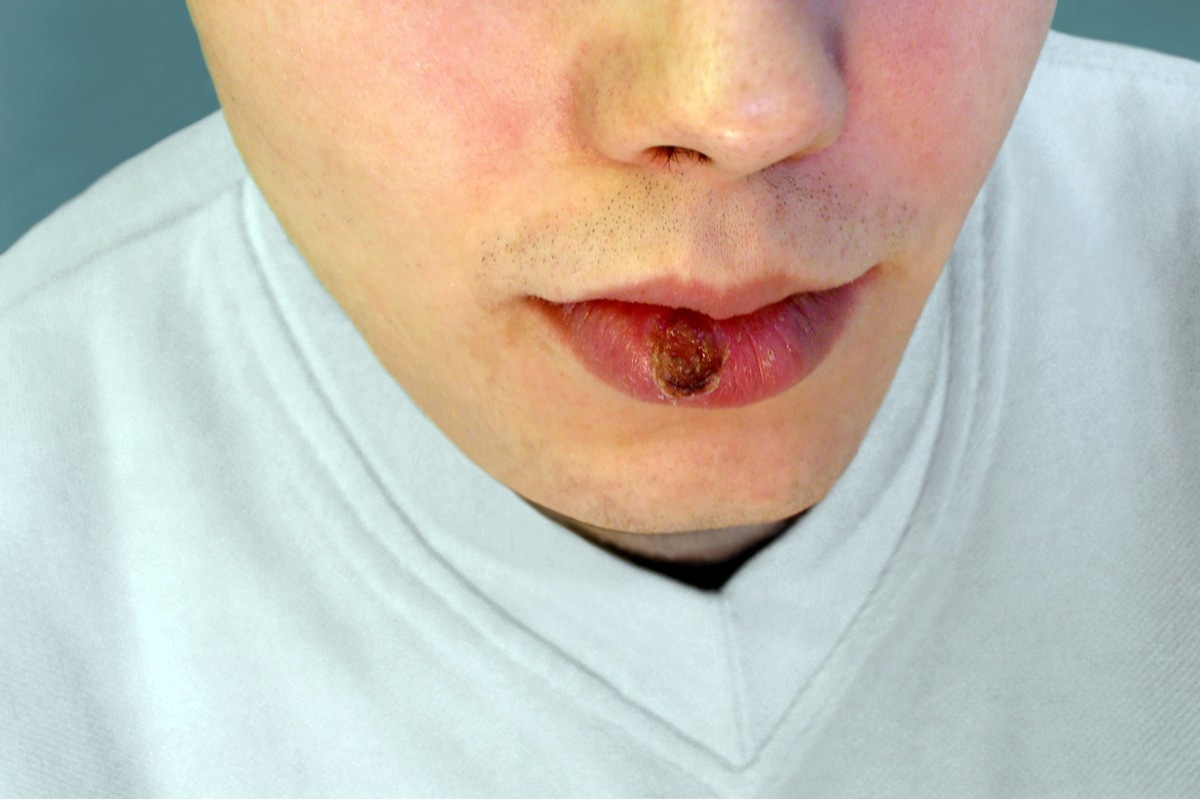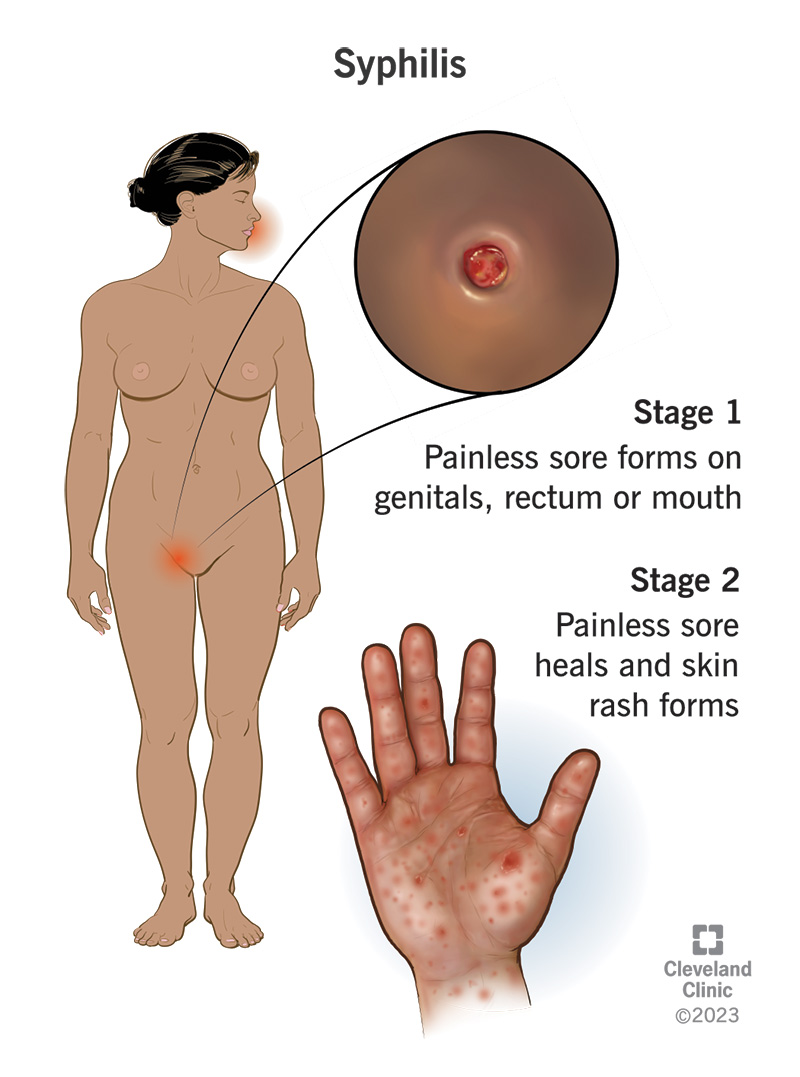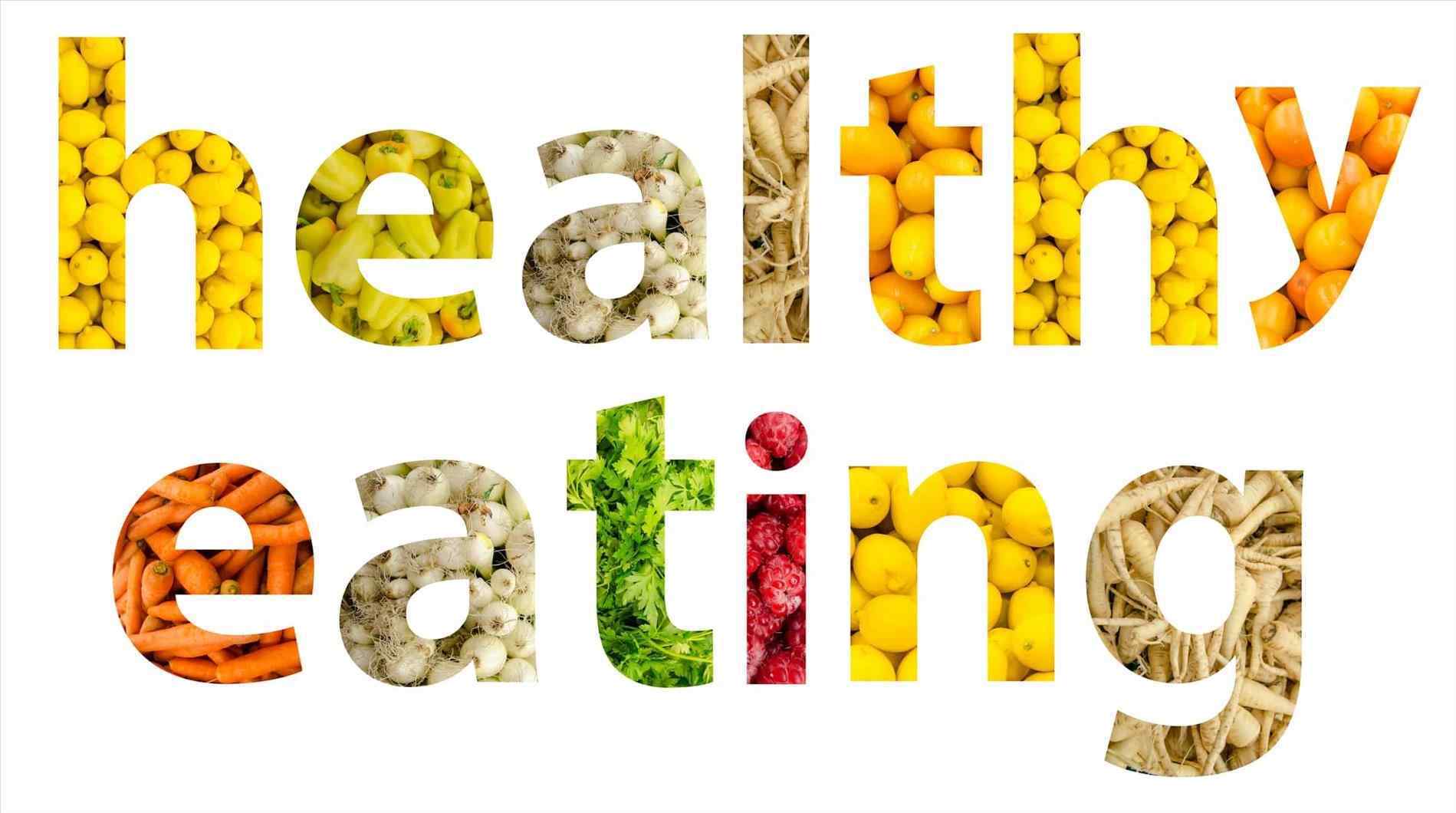HEALTH NEWS “Healthy Lifestyle & Wellness Tips"
HealthNews: focuses on the latest news and information about health,health,healthynews, healthy lifestyle, disease, diet, benefit, wellness, news, news update ,We understand that accurate and reliable information is very important for our health and well-being.Here you will find a variety of topics, from healthy living, to the latest diet trends,
الخميس، 28 أغسطس 2025
Fibermaxxing-Benefits or Dangers?
السبت، 6 مايو 2023
Bejel: Symptoms, Treatment, and Prevention
Exploring the Epidemiology and Research Advances of Endemic Syphilis or Bejel
 |
| Bejel: Symptoms, Treatment, and Prevention, Healthnews // News Medical |
Bejel Found in Arid Regions of the World
Healthnews: Bejel, also known as endemic syphilis, is a chronic bacterial infection caused by the bacterium Treponema pallidum subsp. endemicum. It is primarily found in arid regions of the world, such as the Middle East, North Africa, and Central Australia, and is transmitted through close contact with infected individuals.
Bejel is primarily found in arid regions of the world, including the Middle East, North Africa, and Central Australia, where it is transmitted through close contact with infected individuals.
The symptoms of bejel can be similar to those of other sexually transmitted infections and skin conditions, making diagnosis challenging. Blood tests and examination of affected tissue are typically used to diagnose the infection.
Penicillin is the preferred antibiotic for treating bejel, and a single injection can cure the infection if administered early. Close follow-up with a healthcare provider is necessary to monitor the response to treatment and ensure successful resolution of the infection.
Individuals with bejel may remain at risk for reinfection if they continue to engage in behaviors that increase their risk of exposure to the bacterium. Therefore, prevention efforts, such as practicing safe sex and reducing the risk of sexually transmitted infections, are essential for controlling the spread of the disease.
Research on bejel has helped to improve our understanding of the disease and inform effective prevention and treatment strategies. However, more research is needed to address remaining gaps in our knowledge of this condition, particularly with regard to its long-term effects on affected individuals.
 |
| Bejel: Symptoms, Treatment, and Prevention, Healthnews // Cleveland Clinic |
The symptoms of bejel, also known as endemic syphilis, can vary depending on the stage of the infection. The disease has four stages: primary, secondary, latent, and late.
Primary stage:
- A painless, red, firm, and round sore called a chancre appears on the skin, typically on the genitals, anus, or mouth, where the bacterium enters the body.
- The sore can persist for several weeks before it goes away, but the bacteria continue to multiply and spread throughout the body.
Secondary stage:
- A rash, which may be red or brown, develops on the trunk and extremities, including the palms of the hands and soles of the feet.
- Lesions may also appear in the mouth, throat, and genitals.
- Other symptoms may include fever, headache, swollen lymph nodes, and fatigue.
Latent stage:
- The infection becomes asymptomatic and may last for years.
- Although there are no symptoms, the bacterium can still be present in the body and can cause complications in later stages.
Late stage:
- If left untreated, bejel can progress to late-stage complications, which can affect multiple organ systems.
- These complications may include destructive lesions of the bones and joints, chronic ulcers, and cardiovascular disease.
It is important to note that the symptoms of bejel can be similar to those of other sexually transmitted infections and skin conditions, so it is essential to seek medical attention for an accurate diagnosis and appropriate treatment.
The treatment for bejel, also known as endemic syphilis, involves a course of antibiotics to eliminate the bacterial infection. The choice of antibiotic and duration of treatment depend on the stage of the disease and the individual's medical history.
In general, penicillin is the preferred antibiotic for treating bejel. Depending on the stage of the disease and individual factors, other antibiotics, such as doxycycline or azithromycin, may also be used.
The duration of antibiotic treatment may vary depending on the stage of the infection. For early-stage bejel, a single injection of penicillin is usually sufficient to cure the infection. For later stages, a longer course of antibiotics may be necessary, and close follow-up with a healthcare provider is essential to monitor the response to treatment.
It is important to note that even after successful treatment, individuals with bejel may remain at risk for reinfection if they continue to engage in behaviors that increase their risk of exposure to the bacterium. Therefore, it is essential to practice safe sex and take other measures to reduce the risk of sexually transmitted infections.
 |
| Bejel: Symptoms, Treatment, and Prevention, Healthnews // Medicover Hospital |
Prevention is Key to Stopping the Spread of Bejel
Prevention of bejel involves measures to reduce the risk of exposure to the bacterium that causes the infection. Some key strategies for preventing bejel include:
- Practicing safe sex: Bejel is primarily transmitted through close contact with infected individuals, including sexual contact. Therefore, using barrier methods such as condoms during sexual activity can reduce the risk of transmission.
- Getting tested and treated: Early detection and treatment of bejel can help prevent the spread of the infection. It is important to get tested for sexually transmitted infections regularly, particularly if engaging in high-risk behaviors.
- Educating and raising awareness: Raising awareness about bejel and other sexually transmitted infections can help to reduce stigma and increase understanding of the importance of prevention and treatment.
- Improving hygiene and sanitation: Bejel is more common in areas with poor hygiene and sanitation, so improving living conditions and access to clean water can help reduce the risk of transmission.
- Addressing social and economic factors: Bejel is more common among marginalized populations, including those living in poverty or experiencing conflict or displacement. Addressing social and economic factors that contribute to these disparities can help to reduce the burden of bejel and other sexually transmitted infections.
By taking these preventive measures, we can help reduce the risk of bejel and other sexually transmitted infections and promote overall health and well-being.
الأحد، 23 أبريل 2023
Benefits of a Whole Food Plant-Based Diet
The Power of a Plant-Based Diet: Benefits of Going Whole Food
 |
| Benefits of a Whole Food Plant-Based Diet, Healthnews // Plant-Based Cooking |
Discover the Nutritional Advantages and Health Benefits of a Whole Food Plant-Based Diet
Healthnews: When it comes to healthy eating, there are many different approaches you can take. One of the most popular options in recent years has been a whole food plant-based diet. This way of eating emphasizes foods that are minimally processed and derived from plants, such as fruits, vegetables, whole grains, legumes, nuts, and seeds. If you're curious about this dietary approach, here are some of the benefits you can expect.
- Better weight management: A whole food plant-based diet is naturally low in calories and high in fiber, which can help you feel full and satisfied while consuming fewer calories overall, leading to weight loss.
- Improved heart health: Plant-based foods are naturally low in saturated fat and high in fiber, which can help reduce your risk of heart disease. Studies have also found that following a plant-based diet can help lower blood pressure and improve cholesterol levels.
- Reduced risk of chronic diseases: A whole food plant-based diet is rich in antioxidants and other nutrients that can help reduce your risk of chronic diseases such as cancer, diabetes, and Alzheimer's disease.
- Improved gut health: The fiber found in plant-based foods can help improve gut health by promoting healthy digestion and reducing the risk of certain digestive issues like constipation and colon cancer.
- Environmental sustainability: A whole food plant-based diet is also better for the environment as it reduces the carbon footprint, conserves water, and reduces pollution.
Following a whole food plant-based diet, you can enjoy these benefits and improve your overall health and well-being.
Understanding the Basics of a Whole Food Plant-Based Diet
At its core, a whole food plant-based diet is all about maximizing the nutrients you get from plant-based foods. This means avoiding highly processed foods and instead focusing on whole, minimally processed options. Some people choose to follow a vegan diet, which excludes all animal products, while others may include small amounts of dairy or meat. However, the emphasis is always on plant-based foods.
Here are some of the basics of this dietary approach:
- Focus on whole foods: A whole food plant-based diet is based on whole, minimally processed foods. This means that you should avoid highly processed foods like refined grains, added sugars, and processed meats.
- Emphasize plant foods: The majority of your diet should come from plant sources, such as fruits, vegetables, whole grains, legumes, nuts, and seeds. These foods are rich in fiber, vitamins, minerals, and other nutrients that are essential for optimal health.
- Limit animal products: While a whole food plant-based diet does not necessarily exclude animal products, it does emphasize limiting them. Animal products like meat, dairy, and eggs should be consumed in moderation and should be of high quality.
- Avoid added oils and fats: A whole food plant-based diet avoids the use of added oils and fats. Instead, healthy fats can be obtained from whole food sources like nuts, seeds, and avocados.
- Incorporate variety: To ensure that you are getting a wide range of nutrients, it is important to incorporate a variety of plant foods in your diet. This can include different types of fruits, vegetables, grains, legumes, nuts, and seeds.
R E A D :
- Balancing Your Plate Exploring the Health Benefits and Guidelines of a Macrobiotic Diet
- The Flexitarian Diet Is
- 10 Shocking Diet Hacks for Rapid Weight Loss Experts Reveal the Top Secrets
Foods to Include in a Whole Food Plant-Based Diet
When you're following a whole food plant-based diet, there are many different foods you can include in your meals. Some of the key options include fruits like berries, apples, and oranges, vegetables like leafy greens, broccoli, and sweet potatoes, whole grains like quinoa and brown rice, legumes like lentils and chickpeas, nuts like almonds and walnuts, and seeds like chia and flax seeds. These foods are rich in fiber, vitamins, and minerals that your body needs to function properly.
Here are some of the foods you should include in your diet:
- Fruits: Apples, bananas, berries, oranges, and other fruits are rich in fiber, vitamins, and antioxidants.
- Vegetables: Leafy greens, cruciferous vegetables, root vegetables, and other colorful vegetables are packed with nutrients and fiber.
- Whole grains: Brown rice, quinoa, oats, and other whole grains are a great source of fiber, protein, and other essential nutrients.
- Legumes: Beans, lentils, chickpeas, and other legumes are a good source of protein, fiber, and other important nutrients.
- Nuts and seeds: Almonds, walnuts, chia seeds, and flaxseeds are a good source of healthy fats, protein, and fiber.
- Plant-based milks: Almond milk, soy milk, and other plant-based milks are a good alternative to dairy milk.
- Tofu and tempeh: Tofu and tempeh are a good source of protein and can be used as a substitute for meat.
 |
| Benefits of a Whole Food Plant-Based Diet, Healthnews // Active health |
How a Whole Food Plant-Based Diet Can Help You Lose Weight
One of the most compelling reasons to try a whole food plant-based diet is that it can help you lose weight. This dietary approach is naturally low in calories and high in fiber, which can help you feel full and satisfied while consuming fewer calories overall. Additionally, research has shown that people who follow a plant-based diet tend to have lower BMIs and lower rates of obesity than those who eat a more traditional Western diet.
A whole food plant-based diet can help you lose weight in several ways:
- High in fiber: Whole plant foods are naturally high in fiber, which can help you feel full and satisfied, leading to reduced calorie intake.
- Low in calories: A whole food plant-based diet is naturally low in calories and high in nutrients, which means that you can eat more food while consuming fewer calories overall.
- Low in saturated fat: Animal products like meat and dairy are high in saturated fat, which can contribute to weight gain. A whole food plant-based diet is naturally low in saturated fat and high in healthy fats from sources like nuts, seeds, and avocados.
- Reduces inflammation: Chronic inflammation is associated with weight gain. A whole food plant-based diet is rich in anti-inflammatory nutrients like fiber, vitamins, and antioxidants, which can help reduce inflammation and support weight loss.
- Encourages healthy habits: A whole food plant-based diet encourages healthy eating habits like cooking at home, meal planning, and choosing nutrient-dense foods over processed snacks and meals.
By adopting a whole food plant-based diet, you can promote weight loss and improve your overall health and well-being. However, it is important to remember that weight loss is a complex process and that a whole food plant-based diet is just one factor that can contribute to weight loss. Other factors like exercise, stress management, and sleep also play a role in achieving and maintaining a healthy weight.
The Connection Between a Whole Food Plant-Based Diet and Heart Health
Another major benefit of a whole food plant-based diet is that it can help protect your heart health. This is because plant-based foods are naturally low in saturated fat and high in fiber, which can help reduce your risk of heart disease. Studies have also found that following a plant-based diet can help lower blood pressure and improve cholesterol levels, both of which are important markers of heart health.
Here are some of the ways this dietary approach can improve heart health:
- Lowers cholesterol: A whole food plant-based diet is naturally low in cholesterol and saturated fat, which are major contributors to high cholesterol levels. By reducing intake of these substances and increasing consumption of plant foods, cholesterol levels can be lowered, reducing the risk of heart disease.
- Reduces inflammation: Chronic inflammation has been linked to the development of heart disease. Whole plant foods are naturally rich in anti-inflammatory nutrients like fiber, vitamins, and antioxidants, which can help reduce inflammation and promote heart health.
- Lowers blood pressure: High blood pressure is a major risk factor for heart disease. A whole food plant-based diet is naturally low in sodium and high in potassium, which can help lower blood pressure and reduce the risk of heart disease.
- Improves endothelial function: The endothelium is a layer of cells that lines the blood vessels. A healthy endothelium is essential for maintaining proper blood flow and preventing heart disease. Studies have shown that a whole food plant-based diet can improve endothelial function and reduce the risk of heart disease.
- Promotes weight loss: Excess weight is a risk factor for heart disease. A whole food plant-based diet can promote weight loss and improve body composition, reducing the risk of heart disease.
If you're interested in trying a whole food plant-based diet, there are a few things you can do to make the transition easier. Start by gradually incorporating more plant-based foods into your diet, such as swapping out meat for beans in a recipe or incorporating more veggies into your meals. You can also experiment with new
recipes and cuisines to keep things interesting. Finally, consider working with a registered dietitian to ensure you're getting all the nutrients you need as you make the switch to a whole food plant-based diet. With time and practice, you can reap the many benefits of this healthy and delicious way of eating.
Making the switch to a whole food plant-based diet can seem daunting at first, but it doesn't have to be. Here are some tips for transitioning to this dietary approach:
- Start slow: Don't feel like you have to switch to a whole food plant-based diet overnight. Start by incorporating more plant-based meals into your diet and gradually reducing your intake of animal products.
- Learn new recipes: Explore new recipes that are centered around whole plant foods. There are many resources available online and in cookbooks to help you find delicious plant-based meals.
- Experiment with new ingredients: Whole plant foods like legumes, whole grains, and vegetables can be prepared in many different ways. Experiment with different preparations to find what you enjoy.
- Stock up on essentials: Make sure you have plenty of staples like beans, whole grains, and vegetables on hand to make plant-based meals easy and convenient.
- Focus on nutrient density: Whole plant foods are naturally rich in nutrients like fiber, vitamins, and minerals. Focus on incorporating a variety of nutrient-dense foods into your diet.
- Seek support: Joining a community of like-minded individuals can be helpful in making the transition to a whole food plant-based diet. Look for online groups or local meetups to connect with others who share your dietary goals.
Remember that making the switch to a whole food plant-based diet is a process, and that it's important to be patient and kind to yourself as you navigate this transition. With time and practice, you can adopt this dietary approach and enjoy the many health benefits that come with it.
> A whole food plant-based diet can offer numerous health benefits, including weight loss, improved heart health, and reduced risk of chronic diseases. By focusing on whole, nutrient-dense plant foods like fruits, vegetables, whole grains, and legumes, you can enjoy a varied and satisfying diet that promotes optimal health. While making the switch to a whole food plant-based diet may require some effort and adjustment, the benefits are well worth it. So if you're looking to improve your health and wellbeing, consider incorporating more plant-based meals into your diet and see how it can benefit you.
الجمعة، 21 أبريل 2023
Scoops of Health The Benefits of Ice Cream
The Sweet Story of Ice Cream: History and Health Benefits
 |
| The Benefits of Ice Cream, Healthnews // Fitelo |
The History and Health Benefits of Ice Cream
Indulging in Moderation: The Surprising Health Benefits of Ice Cream
Healthnews: Ice cream is a beloved treat enjoyed by people all over the world. It is a dessert that has been around for centuries, with roots dating back to ancient China, Persia, and Greece. In this article, we will explore the history and health benefits of ice cream.
History of Ice Cream
Ice cream has a long and storied history. The first recorded instance of ice cream was in China during the Tang Dynasty (618-907 AD). It was made by mixing snow or ice with rice milk, flour, and camphor. The Persian Empire also had a version of ice cream called "faloodeh," which was made with vermicelli noodles, rose water, and sugar.
Ice cream as we know it today was first introduced in Europe in the 17th century. It was a luxury item that was only enjoyed by the elite. It wasn't until the 18th century that ice cream became more widely available and affordable.
Health Benefits of Ice Cream
Ice cream is often considered an indulgent treat, but it actually has some health benefits. Here are five health benefits of ice cream:
- Calcium: Ice cream is a good source of calcium, which is essential for strong bones and teeth.
- Vitamins: Ice cream also contains vitamins A, B6, B12, C, D, and E, all of which are important for maintaining good health.
- Energy: Ice cream is a good source of energy and can be a quick pick-me-up when you're feeling tired or sluggish.
- Mood Boost: Eating ice cream can release endorphins, which are feel-good hormones that can improve your mood.
- Hydration: Ice cream contains water, which can help you stay hydrated, especially during hot weather.
R E A D :
- The Power of Tea Boosting Health with Green and Black Tea
- Chia Seeds The Nutrient-Dense Superfood for Improved Health and Wellness
- Blueberries The Magical Fruit that Improves Health from the Inside and the Outside
Ice Cream and Moderation
While ice cream does have health benefits, it is important to enjoy it in moderation. Ice cream is high in calories, fat, and sugar, which can lead to weight gain and other health problems if consumed in excess.
Ice Cream Varieties
Over the years, ice cream has evolved into a wide variety of flavors and types. From classic vanilla and chocolate to more adventurous flavors like avocado and lavender, there is a flavor to suit every taste preference. Some popular types of ice cream include:
- Gelato: Originating in Italy, gelato has a creamy and dense texture and is usually made with more milk than cream.
- Sorbet: Sorbet is a dairy-free frozen dessert made with fruit puree, sugar, and water. It is often served as a palate cleanser between courses.
- Frozen Yogurt: Frozen yogurt is a healthier alternative to ice cream and is made with yogurt instead of cream.
- Soft Serve: Soft serve is a type of ice cream that is made with less milk fat and is churned at a higher speed, resulting in a creamier texture.
- Vegan Ice Cream: Vegan ice cream is made without any dairy products and is usually made with coconut milk or almond milk.

Scoops of Health The Benefits of Ice Cream, Healthnews // FirstCry parenting
Ice Cream Around the World
Ice cream is a popular dessert in many cultures around the world. In Japan, ice cream is often served in unique flavors like green tea and wasabi. In Italy, gelato is a staple dessert, and it is common to enjoy it as an afternoon snack. In India, kulfi is a popular frozen dessert that is made with condensed milk and flavored with cardamom and saffron. In the United States, ice cream is often enjoyed in a cone or as a topping on a warm slice of apple pie.
> Ice cream is a dessert that has stood the test of time and continues to be enjoyed by people of all ages. Its rich history and evolution into a wide variety of flavors and types make it a dessert that is sure to satisfy any sweet tooth. While it should be enjoyed in moderation, there's no denying the joy that a scoop of ice cream can bring.
الاثنين، 17 أبريل 2023
7 Healthy Foods for Boosting Female Fertility
Boost Your Fertility with These 7 Healthy Foods for Women
Healthnews: Fertility is a complex issue that can be influenced by a range of factors. While there are many treatments available for women who struggle to conceive, one of the simplest and most effective ways to increase fertility is to adopt a healthy diet. In this article, we will explore seven healthy foods that can help women boost their fertility.
Spinach
Spinach is a leafy green vegetable that is packed with essential vitamins and minerals that can help to improve fertility. It contains high levels of folate, which has been shown to help women conceive and reduce the risk of birth defects. Spinach is also a good source of iron, which can help to regulate menstrual cycles and increase the chances of ovulation.
Avocado
Avocado is a superfood that is rich in healthy fats and antioxidants. These nutrients can help to improve hormone balance, which is essential for fertility. Additionally, avocados are a good source of vitamin E, which can help to improve egg quality and increase the chances of conception.
Salmon
Salmon is a fatty fish that is rich in omega-3 fatty acids. These healthy fats can help to regulate hormone levels and improve the quality of cervical mucus, which can make it easier for sperm to reach the egg. Salmon is also a good source of vitamin D, which has been shown to improve fertility in women.
R E A D :
- The Sweet Benefits of Honey Enhancing Health and Wellness
- Blueberries The Magical Fruit that Improves Health from the Inside and the Outside
- Fish Oils The Superhero of Omega-3 Fatty Acid
Berries
Berries are a delicious and nutritious addition to any diet. They are rich in antioxidants, which can help to protect the eggs from damage and improve overall fertility. Berries are also a good source of vitamin C, which has been shown to improve the quality of sperm and increase the chances of conception.
Lentils
Lentils are a type of legume that are packed with protein, fiber, and essential vitamins and minerals. They are a good source of folate, which has been shown to improve fertility in women. Lentils are also a good source of iron, which can help to regulate menstrual cycles and improve the chances of ovulation.
Greek Yogurt
Greek yogurt is a high-protein dairy product that is rich in probiotics. These healthy bacteria can help to improve gut health, which is essential for fertility. Additionally, Greek yogurt is a good source of calcium, which has been shown to improve the chances of conception.
Sweet Potatoes
Sweet potatoes are a root vegetable that is rich in beta-carotene. This nutrient has been shown to improve fertility in women by regulating the menstrual cycle and improving the quality of eggs. Sweet potatoes are also a good source of fiber, which can help to regulate blood sugar levels and improve overall health.
 |
| 7 Healthy Foods for Boosting Female Fertility, Healthnews // SneakPeek |
* Fertility is a complex issue, but there are many simple steps that women can take to improve their chances of conceiving. By incorporating these seven healthy foods into their diet, women can improve their overall health and increase their fertility. So why not start incorporating these foods into your diet today and take the first step towards a healthy pregnancy?
Healthy Eating-Balanced Nutrition Tips
Healthy Eating Habits and Balanced Nutrition: Key to a Healthier You
The Benefits of Healthy Eating Habits
Healthy eating habits have numerous benefits, including:
- Improved physical health: Eating a balanced diet can help reduce the risk of chronic illnesses such as heart disease, diabetes, and certain cancers.
- Improved mental health: Studies have shown that a healthy diet can improve mood, reduce stress and anxiety, and even prevent depression.
- Increased energy levels: Eating a diet rich in nutrients can provide you with the energy you need to get through the day.
- Better sleep: A healthy diet can improve the quality of your sleep, leading to better overall health and well-being.
- 7 Tips Nutritious Breakfast every day
- Eating Habits to Avoid for Heart Health
- Healthy Late Night Snacks: Examples and Benefits
- Convenience and Nutrition Exploring the Idea that Fast Food can be Healthy through Informed Choices for a Balanced DieI
Tips for Incorporating Healthy Eating Habits
Here are some tips for incorporating healthy eating habits into your daily life:
- Eat a variety of foods: Eating a variety of foods can ensure that you get all the nutrients your body needs.
- Limit processed foods: Processed foods can be high in calories, sodium, and unhealthy fats. Try to limit your intake of these foods and opt for whole, unprocessed foods instead.
- Choose lean protein sources: Lean protein sources such as chicken, fish, and beans can provide you with the protein you need without the excess calories and unhealthy fats.
- Watch your portion sizes: Eating too much of even healthy foods can lead to weight gain. Be mindful of your portion sizes and aim to eat until you're satisfied, not full.
The Importance of Balanced Nutrition
Balanced nutrition is essential for good health. It means eating a variety of foods in the right proportions to provide your body with the nutrients it needs. A balanced diet should include:
- Fruits and vegetables: These foods are rich in vitamins, minerals, and fiber, and can help reduce the risk of chronic illnesses.
- Whole grains: Whole grains such as brown rice and whole wheat bread provide your body with energy and nutrients.
- Lean protein sources: Lean protein sources such as chicken, fish, and beans can provide you with the protein you need without the excess calories and unhealthy fats.
- Healthy fats: Healthy fats such as olive oil and avocado can provide your body with essential fatty acids that are important for good health.
Simple Changes for Better Nutrition
Making simple changes to your diet can help you achieve better nutrition. Here are some suggestions:
- Start your day with a healthy breakfast: A healthy breakfast can provide you with the energy you need to start your day.
- Choose healthy snacks: Instead of reaching for chips or candy, choose healthier snacks such as fruits, vegetables, or nuts.
- Drink plenty of water: Drinking plenty of water can help you stay hydrated and reduce your risk of overeating.
- Cook at home: Cooking at home can help you control the ingredients in your meals and ensure that you're eating a balanced diet.
* Healthy eating habits and balanced nutrition are essential for good health. By incorporating these habits into your daily life, you can improve your physical and mental well-being, increase your energy levels, and reduce your risk of chronic illnesses. Remember to eat a variety of foods, limit processed foods, and watch your portion sizes. With a little effort, you can enjoy a healthier, happier life.
الأحد، 16 أبريل 2023
Healthy Diet for Hair Loss Prevention
The Nutrients Your Hair Needs to Stay Healthy and Strong
 |
| Healthy Diet for Hair Loss Prevention,Healthnews // Purplle |
What Causes Hair Loss?
Before we dive into the relationship between diet and hair loss, let's take a look at what causes hair loss. There are many factors that can contribute to hair loss, including genetics, hormonal imbalances, aging, stress, and certain medical conditions. Androgenetic alopecia, also known as male or female pattern baldness, is the most common form of hair loss, affecting both men and women. It's caused by a combination of genetics and hormones and can lead to thinning hair or bald patches.
Other types of hair loss include telogen effluvium, which is caused by a shock to the body, such as surgery, illness, or childbirth, and alopecia areata, an autoimmune disorder that causes hair loss in patches.
How Does Diet Affect Hair Health?
Diet plays a crucial role in hair health. The hair follicles require a steady supply of nutrients to function properly and grow new hair. A diet that is deficient in certain nutrients can lead to hair loss and other hair problems, such as dryness, brittleness, and slow growth.
Some of the key nutrients that are essential for healthy hair growth include:
- Protein - Hair is primarily made up of protein, so it's important to consume enough high-quality protein in your diet. Good sources of protein include lean meats, fish, eggs, beans, and nuts.
- Iron - Iron is necessary for the production of hemoglobin, a protein in red blood cells that carries oxygen to the body's tissues, including the hair follicles. Iron-rich foods include red meat, poultry, fish, beans, and leafy green vegetables.
- Zinc - Zinc is essential for healthy hair growth and repair. It helps to keep the oil glands around the hair follicles working properly, which keeps the scalp healthy. Good sources of zinc include oysters, beef, pumpkin seeds, and lentils.
- Biotin - Biotin is a B-vitamin that is essential for healthy hair, skin, and nails. It's found in foods such as eggs, nuts, and whole grains.
- Vitamin D - Vitamin D is important for hair growth and can be obtained from sunlight, fortified foods, or supplements.
- Omega-3 fatty acids - Omega-3 fatty acids are essential fatty acids that are important for healthy hair growth. Good sources of omega-3s include fatty fish, flaxseeds, and walnuts.
Can a Healthy Diet Prevent Hair Loss?
While genetics and other factors play a significant role in hair loss, a healthy diet can help prevent or slow down hair loss and promote healthy hair growth. Consuming a diet that is rich in the above-mentioned nutrients can help keep the hair follicles healthy and functioning properly. A well-balanced diet that includes plenty of fruits, vegetables, lean proteins, and whole grains can also help maintain overall health, which can have a positive impact on hair health.
In addition to consuming a healthy diet, it's also important to avoid crash diets or diets that restrict certain food groups, as they can lead to nutrient deficiencies and hair loss. Drinking plenty of water, avoiding smoking and excessive alcohol consumption, and managing stress levels can also contribute to healthy hair growth.
A healthy diet is essential for healthy hair growth and can help prevent hair loss caused by nutrient deficiencies. A well-balanced diet that includes a variety of nutrient-dense foods, coupled with other lifestyle changes, can go a long way in promoting healthy hair and overall health.
LATEST POST
Mental Disorders Your Essential to Understanding the Mind
Mental Health: Shattering Stigmas and Understanding Disorders Mental Disorders Your Essential to Understanding the Mind, Healthnews // Depo...

-
Decoding Ramsay Hunt Syndrome: A Comprehensive Guide to Causes, Symptoms, and Treatment Ramsay Hunt Syndrome // Medical Presentations Under...
-
The Power of Plant-Based Eating: How the Macrobiotic Diet Can Transform Your Health and Wellness Macrobiotic Diet // Well + Good Discover th...
-
Mental Health: Shattering Stigmas and Understanding Disorders Mental Disorders Your Essential to Understanding the Mind, Healthnews // Depo...

.png)



